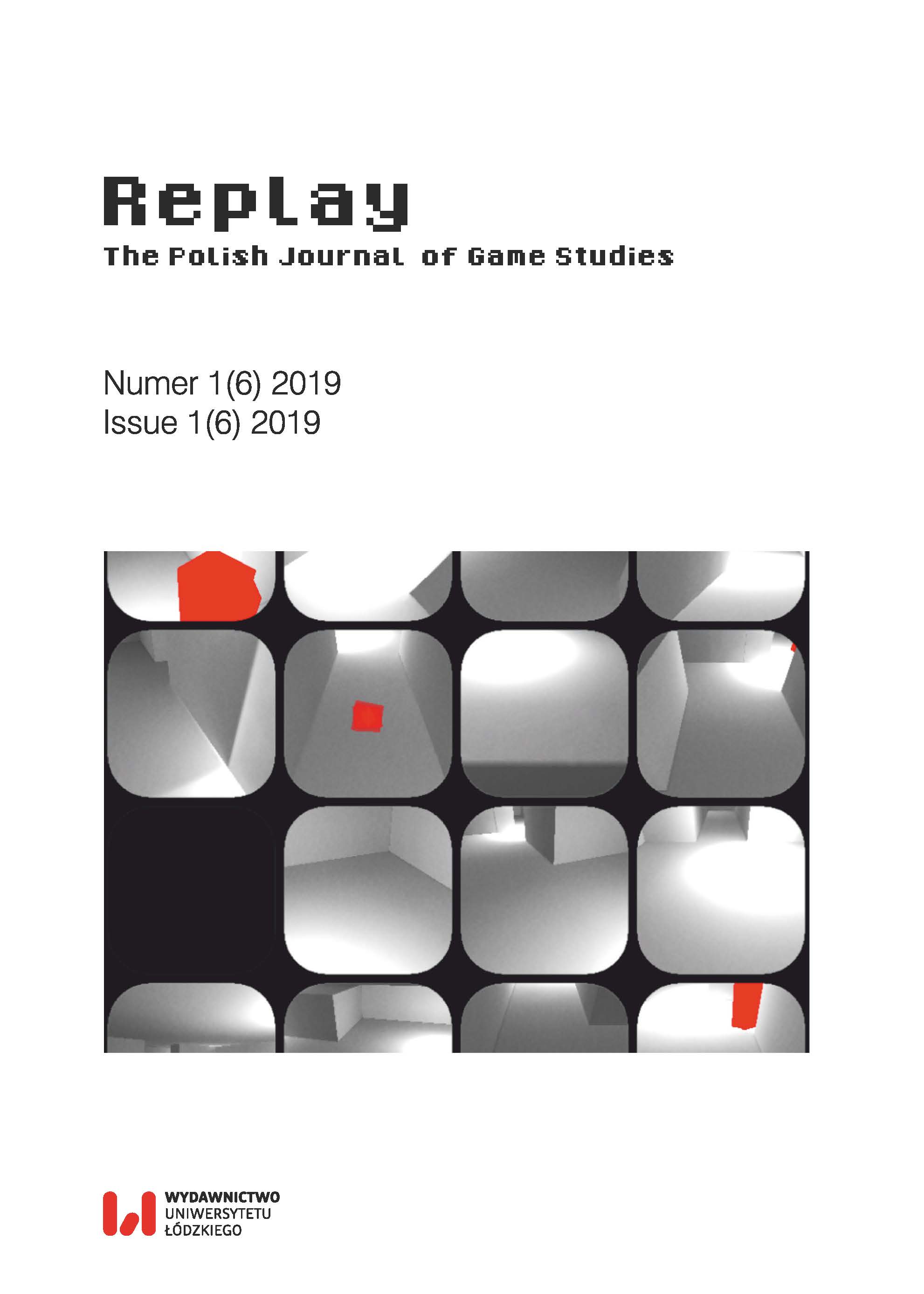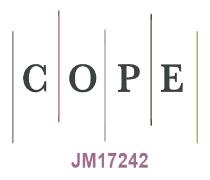Playing with Failure. Conceptualization of Failure in Game Studies
DOI:
https://doi.org/10.18778/2391-8551.06.03Keywords:
video games, video games theory, queer theory, failureAbstract
The aim of the article is to present examples of already existing theories about the experience of failure in digital games and then propose a different approach to it. Firstly, it shows the way Csíkszentmihályi’s flow theory and Juul’s The Art of failure describe the motivational role of failure; then it points out the persuasive aspects of Bogost’s rhetoric of failure used in serious games industry; and lastly Lee’s, Roche’s and Halberstam’s approaches trying to recognize the positive features of failure are examined. The author then introduces six dimensions of failure based on Calleja’s Player Involvement Model. Through them, an alternative way of thinking about failure is proposed, in which the failure is perceived not (only) as an occurrence which needs fixing, but as a possibility for a different experience of gameplay.
References
Bogost, Ian (2007), Persuasive games: The expressive power of videogames, Cambridge, MA: The MIT Press.
Google Scholar
DOI: https://doi.org/10.7551/mitpress/5334.001.0001
Calleja, Gordon (2011), In-Game. From Immersion to Incorporation, Cambridge, MA: The MIT Press.
Google Scholar
DOI: https://doi.org/10.7551/mitpress/8429.001.0001
Chang, Edmond Y. (2017), Queergaming, [w:] Bonnie Ruberg, Adrienne Shaw, Queer Game Studies, Minneapolis, MN: University of Minnesota Press.
Google Scholar
Csíkszentmihályi, Mihály (2005), Przepływ: psychologia optymalnego doświadczenia, przeł. Magdalena Wajda-Kacmajor, Taszów: Moderator.
Google Scholar
Fassone, Riccardo (2018), Every game is an island: Endings and extremities in video games, New York: Bloomsbury Academic.
Google Scholar
Frasca, Gonzalo (2001), Ephemeral Games: Is It Barbaric to Design Videogames after Auschwitz?, [w:] Markku Eskelinen, Raine Koskimaa (red.), Cybertext Yearbook 2000, Research Center for Contemporary Culture: University of Jyväskylä.
Google Scholar
Halberstam, Jack (2018), Przedziwna sztuka porażki, przeł. Mikołaj Denderski, Warszawa: Krytyka Polityczna.
Google Scholar
Juul, Jesper (2016), Sztuka przegrywania. Esej o bólu, jaki wywołują gry wideo, przeł. Paweł Schreiber, Michał Tabaczyński, Kraków: Korporacja Ha!art.
Google Scholar
Kubiński, Piotr (2016), Gry wideo. Zarys poetyki, Kraków: Towarzystwo Autorów i Wydawców Prac Naukowych Universitas.
Google Scholar
Lee, Shuen-shing (2003), “I Lose, Therefore I Think” A Search for Contemplation amid Wars of Push-Button Glare, „Game Studies”, nr 3.
Google Scholar
McGonigal, Jane (2011), Reality is Broken. Why Games Make Us Better and How They Can Change the World, New York: Penguin Press HC.
Google Scholar
Meades, Alan (2015), Understanding counterplay in video games, New York: Routledge.
Google Scholar
DOI: https://doi.org/10.4324/9781315752655
Mortensen, Torill, Linderoth, Jonas, Brown, Ashley (2018), The Dark Side of Game Play. Controversial Issues in Playful Environments, London: Routledge.
Google Scholar
Murray, Janet (2017), Hamlet on The Holodeck: The Future of Narrative in Cyberspace, Cambridge: MIT Press.
Google Scholar
Roche, Eoin (2018), “Valid” Failure in the Design of Digital Games: An Introspective View from a Player’s Perspective, Praca magisterska, Online: http://www.scss.tcd.ie/publications/theses/diss/2018/TCD-SCSS-DISSERTATION-2018-064.pdf
Google Scholar
Ruberg, Bonnie (2015), No Fun: The Queer Potential of Video Games that Annoy, Anger, Disappoint, Sadden, and Hurt, „QED: A Journal in GLBTQ Worldmaking”,nr 2(2), s. 108–124.
Google Scholar
DOI: https://doi.org/10.14321/qed.2.2.0108
Ruberg, Bonnie (2017), Playing To Lose: The Queer Art of Failing at Video Games [w:] Jennifer Malkowski, TreaAndrea M. Russworm (red.), Gaming representation: Race, Gender, and Sexuality in Video Games, Bloomington: Indiana University Press.
Google Scholar
Sterczewski, Piotr (2013), Retoryka porażki: Semantyczne i perswazyjne funkcje przegranej w “serious games”, “art games” i grach głównego nurtu, „Homo Ludens”, s. 23–34.
Google Scholar
Downloads
Published
How to Cite
Issue
Section
License

This work is licensed under a Creative Commons Attribution-NonCommercial-NoDerivatives 4.0 International License.









